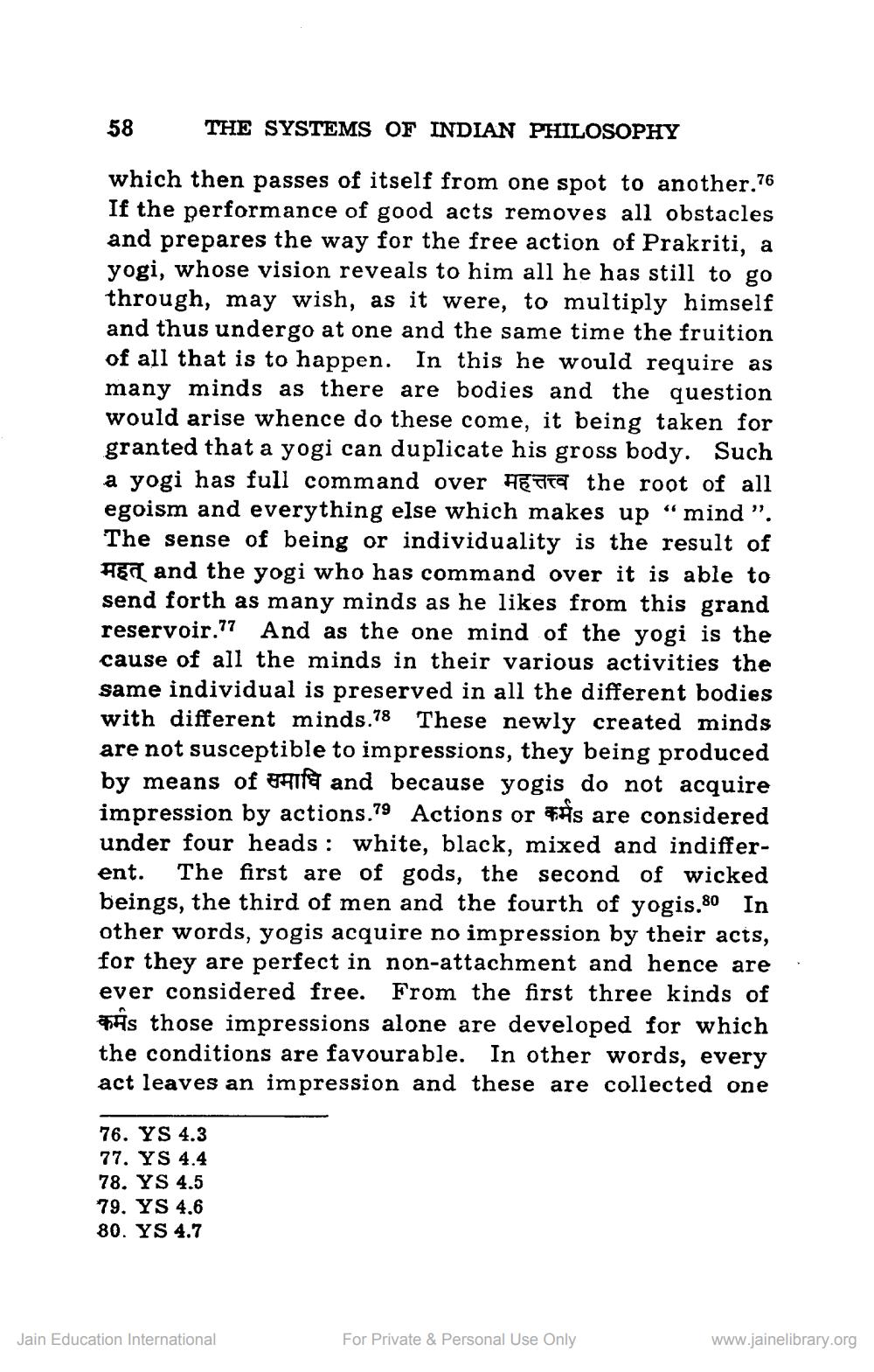________________
58
THE SYSTEMS OF INDIAN PHILOSOPHY
which then passes of itself from one spot to another.76 If the performance of good acts removes all obstacles and prepares the way for the free action of Prakriti, a yogi, whose vision reveals to him all he has still to go through, may wish, as it were, to multiply himself and thus undergo at one and the same time the fruition of all that is to happen. In this he would require as many minds as there are bodies and the question would arise whence do these come, it being taken for granted that a yogi can duplicate his gross body. Such a yogi has full command over HETTO the root of all egoism and everything else which makes up “mind". The sense of being or individuality is the result of HET and the yogi who has command over it is able to send forth as many minds as he likes from this grand reservoir.77 And as the one mind of the yogi is the cause of all the minds in their various activities the same individual is preserved in all the different bodies with different minds.78 These newly created minds are not susceptible to impressions, they being produced by means of phife and because yogis do not acquire impression by actions.79 Actions or pis are considered under four heads : white, black, mixed and indifferent. The first are of gods, the second of wicked beings, the third of men and the fourth of yogis.80 In other words, yogis acquire no impression by their acts, for they are perfect in non-attachment and hence are. ever considered free. From the first three kinds of
As those impressions alone are developed for which the conditions are favourable. In other words, every act leaves an impression and these are collected one
76. YS 4.3 77. YS 4.4 78. YS 4.5 79. YS 4.6 80. YS 4.7
Jain Education International
For Private & Personal Use Only
www.jainelibrary.org




